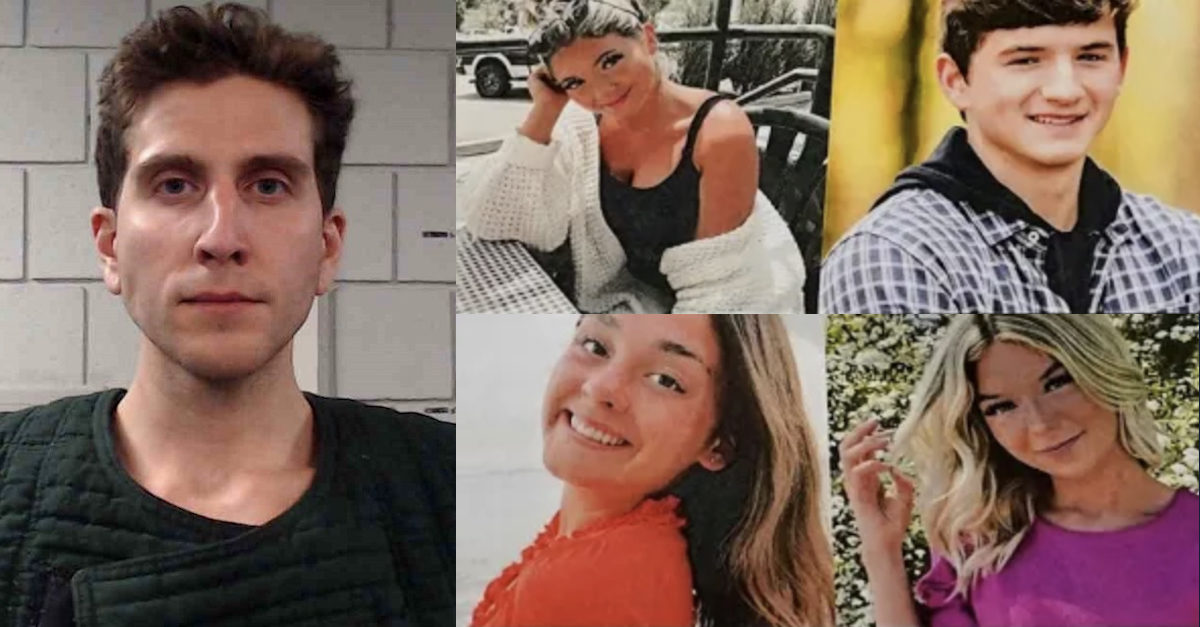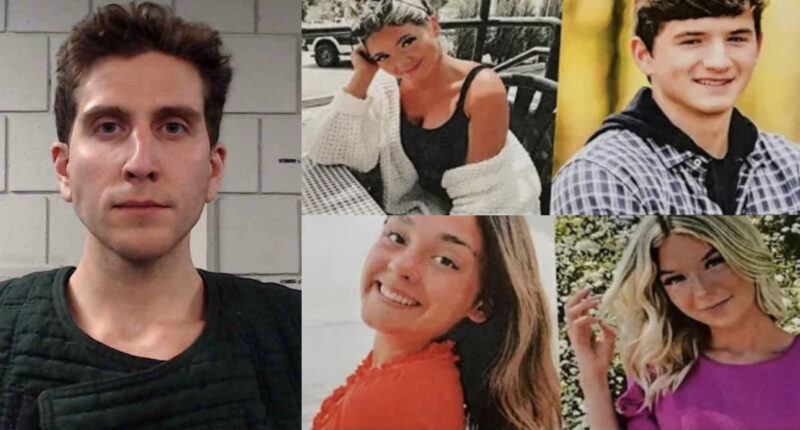
Bryan Kohberger, the murder suspect, has been captured in a mugshot, while images of the four victims involved in the Idaho University Student murder case have been provided by the Kernodle family. These include Bryan Kohberger on the left, Kaylee Goncalves and Ethan Chapin on the top right, and Xana Kernodle and Madison Mogen on the bottom right.
If Bryan Kohberger is found guilty of murdering four Idaho college students in their off-campus apartment, it is highly unlikely that he will escape the death penalty. Typically, perpetrators of multiple horrific murders do not avoid this outcome in states where capital punishment is applicable.
The crimes in question took place on November 13, 2022, when Ethan Chapin, Xana Kernodle, Madison Mogen, and Kaylee Goncalves were fatally stabbed. All four victims were students at the University of Idaho. Kohberger was apprehended six weeks after the murders at his parents’ residence in Pennsylvania. He is now facing charges of four counts of first-degree murder.
Kohberger’s legal team, in an effort to save his life if convicted, have filed a host of pretrial motions challenging the imposition of the death penalty and manner in which it is carried out.
Recently, an Idaho trial court sitting in Ada County denied all of Kohberger motions as they related to the death penalty.
Kohberger’s defense team had sought to remove the death penalty as a possible punishment. Kohberger’s attorneys argued that forcing inmates to wait for years on death row and the methods available for prisoners to be executed in Idaho both constitute cruel and unusual punishment. Attorneys also argued Idaho’s death penalty laws violate an international treaty banning the torture of prisoners.
There is more bad news for Kohberger. Idaho has renewed its interest in the death penalty. The last execution in Idaho was in 2012, when Richard Albert Leavitt was executed by lethal injection. Idaho has carried out only three executions since 1976, when the U.S. Supreme Court reinstated capital punishment.
In February, the state attempted to carry out the its first execution in more than a decade. It didn’t go well.
Seventy-four-year-old Thomas Creech, the state’s longest serving death row inmate, survived his execution. The execution team was unable after nearly an hour to find a vein in Creech’s body suitable for an IV to lethally inject him, and prison leaders called off the execution.
Creech challenged the state’s right to execute him in the future, and Idaho has proposed a new method of lethal injection for Creech: central line IV, which uses a catheter through vein in the neck, or vein in the upper thigh or chest.
In late November, Idaho’s Supreme Court ruled that the state can try again to execute Creech. The Court unanimously rejected the argument that a second execution attempt would represent cruel and unusual punishment under the Eighth Amendment of the U.S. Constitution.
To add to the state’s apparent zest for death, Idaho Gov. Brad Little signed a bill allowing execution by firing squad, which had passed in the legislature in 2023 with a veto-proof majority. According to The Associated Press, the firing squad will be used only if the state cannot obtain the drugs needed for lethal injections.
An execution drug shortage has caused states to look for alternative methods of execution. According to the Death Penalty Information Center, only Mississippi, Utah, Oklahoma and South Carolina have laws allowing firing squads if other execution methods are unavailable.
Creech is not a sympathetic figure. He was convicted of the 1974 murder of two men in Idaho, and later the shooting death of a man in Oregon and another man’s death by strangulation in a California prison.
The Idaho Department of Correction is apparently ready, willing and able if that day should come for Bryan Kohberger.
Matthew T. Mangino is of counsel with Luxenberg, Garbett, Kelly & George P.C. His book “The Executioner’s Toll” (2010) was released by McFarland Publishing. You can reach him at www.mattmangino.com and follow him on Twitter @MatthewTMangino.
This is an opinion piece. The views expressed in this article are those of just the author.











